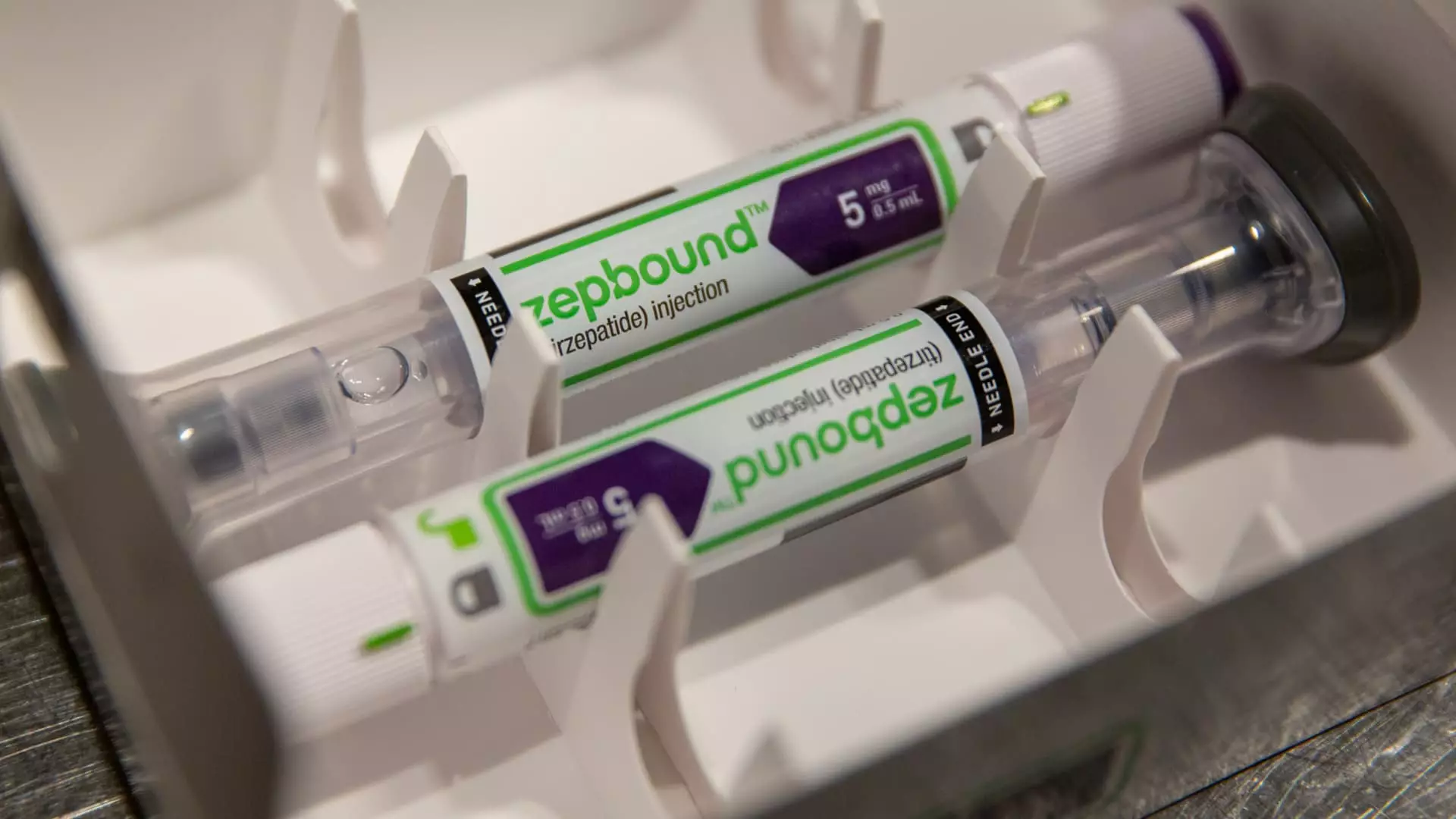In a recent late-stage trial, Eli Lilly’s weight loss drug Zepbound has shown promising benefits in patients with a common type of heart failure and obesity. The findings of the trial have sparked interest in the potential health benefits of Zepbound and other popular GLP-1 drugs beyond weight loss and blood sugar regulation.
The study revealed that patients who took Zepbound were 38% less likely to be hospitalized or die due to heart complications compared to those who received a placebo. Additionally, they were less likely to need to increase their heart failure medication. Zepbound also significantly improved heart failure symptoms and physical limitations in patients with heart failure with preserved ejection fraction (HFpEF) and obesity.
HFpEF is a condition where the heart is unable to pump enough blood to meet the body’s needs, leading to symptoms such as fatigue, shortness of breath, and decreased exercise capacity. The trial followed over 700 patients with HFpEF and obesity, with some also having diabetes. The condition is known to have a high burden of symptoms and physical limitations affecting patients’ daily lives.
The positive results from the trial could potentially lead to broader insurance coverage for Zepbound and other GLP-1 drugs, as well as increased market share for Eli Lilly in the weight loss drug market. Shares of Eli Lilly rose over 3% in response to the announcement, signaling investor confidence in the drug’s potential.
The safety data for Zepbound was consistent with previous trials, with the most common side effects being gastrointestinal in nature. These side effects were reported to be mild to moderate in severity. Eli Lilly plans to present the trial data at a medical meeting and submit it to a peer-reviewed journal for further analysis.
Eli Lilly faces competition from Novo Nordisk, its main rival in the GLP-1 market. Novo Nordisk has already submitted an application for its weight loss drug Wegovy to treat patients with HFpEF. The FDA has also approved Wegovy for reducing the risk of serious heart complications. Both companies are exploring the use of their drugs in patients with various conditions, including chronic kidney disease and fatty liver disease.
Mechanism of Action
GLP-1 drugs work by mimicking hormones produced in the gut to suppress appetite and regulate blood sugar. Zepbound targets both the GLP-1 and GIP hormone receptors, while Wegovy targets only the GLP-1 receptor. This dual mechanism of action may offer additional benefits in patients with heart failure and obesity.
The findings from Eli Lilly’s late-stage trial of Zepbound have shown promising benefits in patients with heart failure and obesity. The positive results could have significant implications for the treatment of HFpEF and other conditions, as well as for the weight loss drug market. Further research and analysis will be needed to fully understand the potential of Zepbound in improving outcomes for patients with heart failure. Eli Lilly’s commitment to presenting the data at medical meetings and submitting it for peer review demonstrates their dedication to transparency and scientific rigor in evaluating the efficacy and safety of their drug.

